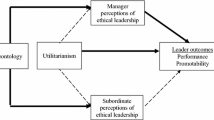Abstract
Defining criteria for ministerial effectiveness has presented researchers with numerous methodological and definitional problems. Global measures of effectiveness lack the situational specificity necessary to be readily applicable to unique churches or congregations. This study compared the definition of effective ministerial style between denominational supervisors and senior ministers of the California-Pacific Conference of the United Methodist Church in an effort to see whether there were modal expectations for this particular group. Utilizing the Job Perception Inventory (John Thomas Group, 1986), 20 job performance variables were assessed. No significant difference was found between the profiles generated by the two groups. Both groups described the ideal ministerial style as that of a generalist, as opposed to a specialist, with a flexible leadership style, making extensive use of participation and direction. Further research is indicated. Finding a modal profile of performance expectations makes it possible to determine whether the effectiveness of individual pastors is a function of their identification with these criteria.
Similar content being viewed by others
References
Atkins, S., & Katcher, A. (1971).Life orientations survey. Beverly Hills, CA: LIFO Associates.
Chemers, M. M., & Skrzypek, G. J. (1972). Experimental test of the contingency model of leadership effectiveness.Journal of Personality and Social Psychology, 24, 172–177.
Dittes, J. E. (1962). Research on clergymen: Factors influencing decisions for religious service and effectiveness in the vocation.Religious Education, 57(supplement), 141–165.
Fiedler, F. (1967).A theory of leadership effectiveness. New York: McGraw-Hill.
Fleishman, E. A. (1955). The description of supervisory behavior.Journal of Applied Psychology, 37, 1–6.
Fleishman, E. A., & Harris, E.F. (1962). Patterns of leadership behavior related to employee grievances and turnover.Personnel Psychology, 15, 43–56.
Graen, G., Alvares, K., Orris, J. B., & Martella, J. A. (1970). Contingency model of leadership effectiveness: Antecedent and evidential results.Psychology Bulletin, 74, 285–296.
Guion, R. M. (1965).Personnel testing. New York: McGraw-Hill.
Hendrix, W. H., & McNichols, C. W. (1984). Organizational effectiveness as a function of managerial style, situational environment, and effectiveness criterion.Journal of Experimental Education, 52(3), 145–151.
House, R. J. (1971). A path goal theory of leader effectiveness.Administrative Science Quarterly, 16, 321–338.
John Thomas Group (1986).The JOB-PERSON-MATCH inventory. (Available from Human Technologies International, 2011 E. Financial Way, Glendora, CA 91740).
Johnson, M., Lohr, H., Wagner, J., & Barger, W. (1975).Growth in ministry. Philadelphia: Lutheran Church of America.
Kling, F. R. (1958). A study of testing as related to the ministry.Religious Education, 53, 243–248.
Malony, H. N. (1984). Ministerial effectiveness: A review of recent research.Pastoral Psychology, 33, 96–104.
Malony, H. N. (1986).Church organizational development: Perspectives and processes. Pasadena, CA: Integration Press.
Malony, H. N., & Howe, B. R. (1988).Effectiveness: A new word for an old concern. Unpublished manuscript.
Malony, H. N., & Majovski, L. F. (1986). The role of psychological assessment in predicting ministerial effectiveness.Review of Religious Research, 28, 29–39.
Moy, A. (1985).The relationship between leadership style and ministerial effectiveness. Unpublished doctoral dissertation, Fuller Theological Seminary, Pasadena, CA.
Nauss, A. (1983). Seven profiles of effective ministers.Review of Religious Research, 24, 334–346.
Robbins, S. P. (1979).Organizational behavior: Concepts and controversies. New York: Prentice Hall.
Schneider, B. (1987). People make the place.Personnel Psychology, 40, 437–453.
Smith, S., & Malony, H. N. (1975).The relationship between church attendance and agreement of minister role expectations. Unpublished master's level research project, Fuller Theological Seminary, Pasadena, CA.
Stogdill, R. M. (1981).Handbook of leadership. New York: Free Press.
Vroom, V. H., & Yetton, P. W. (1973).Leadership and decision making. Pittsburgh, PA: University of Pennsylvania Press.
Webb, S.C. (1968).Inventory of religious activities and interests. Princeton: Educational Testing Service.
Author information
Authors and Affiliations
Rights and permissions
About this article
Cite this article
Lichtman, S.L., Malony, H.N. Effective ministerial style as perceived by denominational leadership. Pastoral Psychol 38, 161–171 (1990). https://doi.org/10.1007/BF01041954
Issue Date:
DOI: https://doi.org/10.1007/BF01041954




